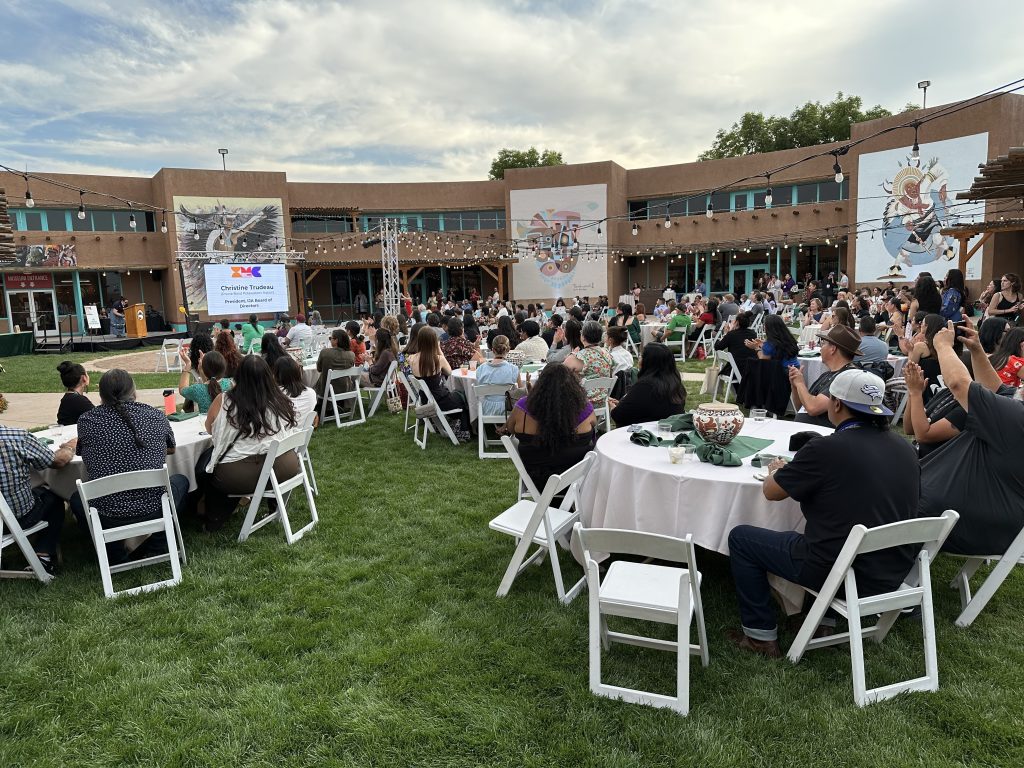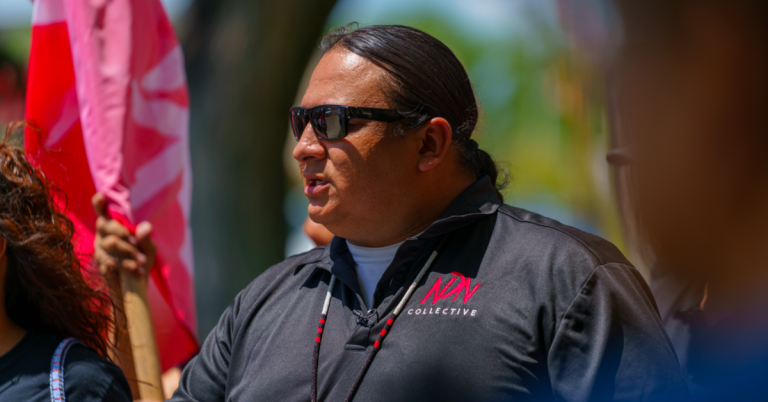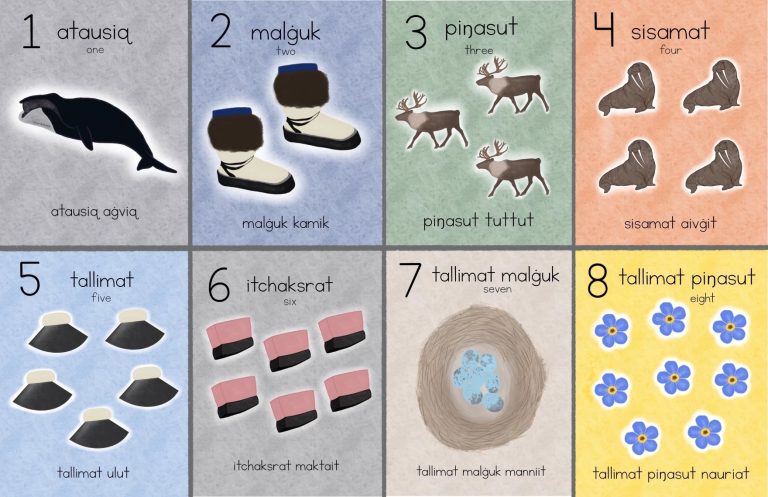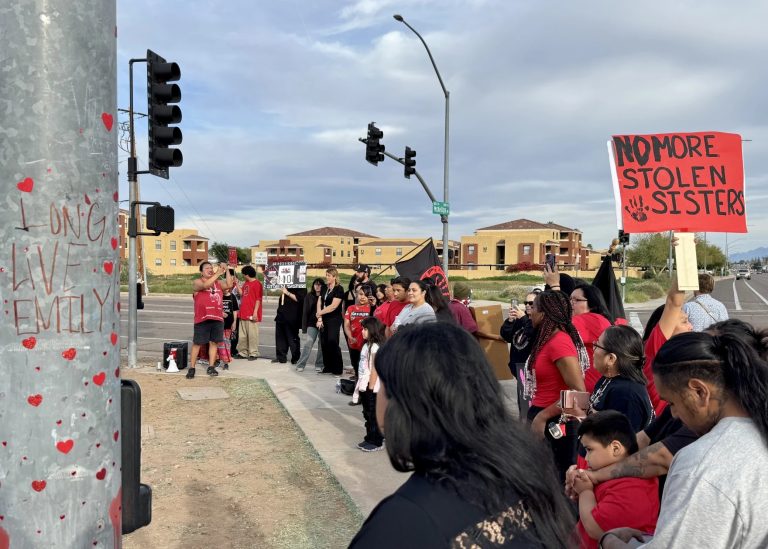Podcast: Play in new window | Download | Embed
The 42nd annual Indigenous Journalists Association (IJA) conference wraps up Friday in Albuquerque, N.M.
Buffalo’s Fire senior reporter Brian Bull was there.
Nearly 400 reporters, editors, and influencers assembled at the Isleta Resort and Casino this week.
Congress’ rescission and its effects on tribal radio stations were one new topic since last year, as were President Trump’s cuts to federal programs and Diversity, Equity, and Inclusion (DEI) initiatives.
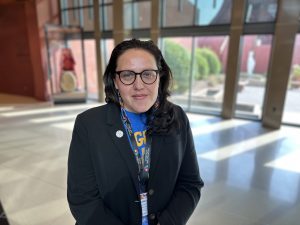
IJA President Christine Trudeau.
IJA President Christine Trudeau says there’s been a lot to process, but her organization’s mission remains the same:
“We need to secure that there is a fourth estate that is upheld for transparency, for truth, for accuracy, for every citizen, for every human being. And that goes for federal level, and that goes for our tribal nations as well.”
Trudeau wraps her term as IJA president.
A new board will be announced at the evening awards ceremony and banquet.
Trudeau says this is a “full-circle” event.
“It’s been a real honor to be doing this and being a part of this. You know, right here in Albuquerque, I got my start. I was an intern at KUNM and I was filing a story a week while I was finishing my undergrad at the Institute of American Indian Arts (IAIA).”
Among the ongoing challenges for Native journalists is getting free press established for tribal media.
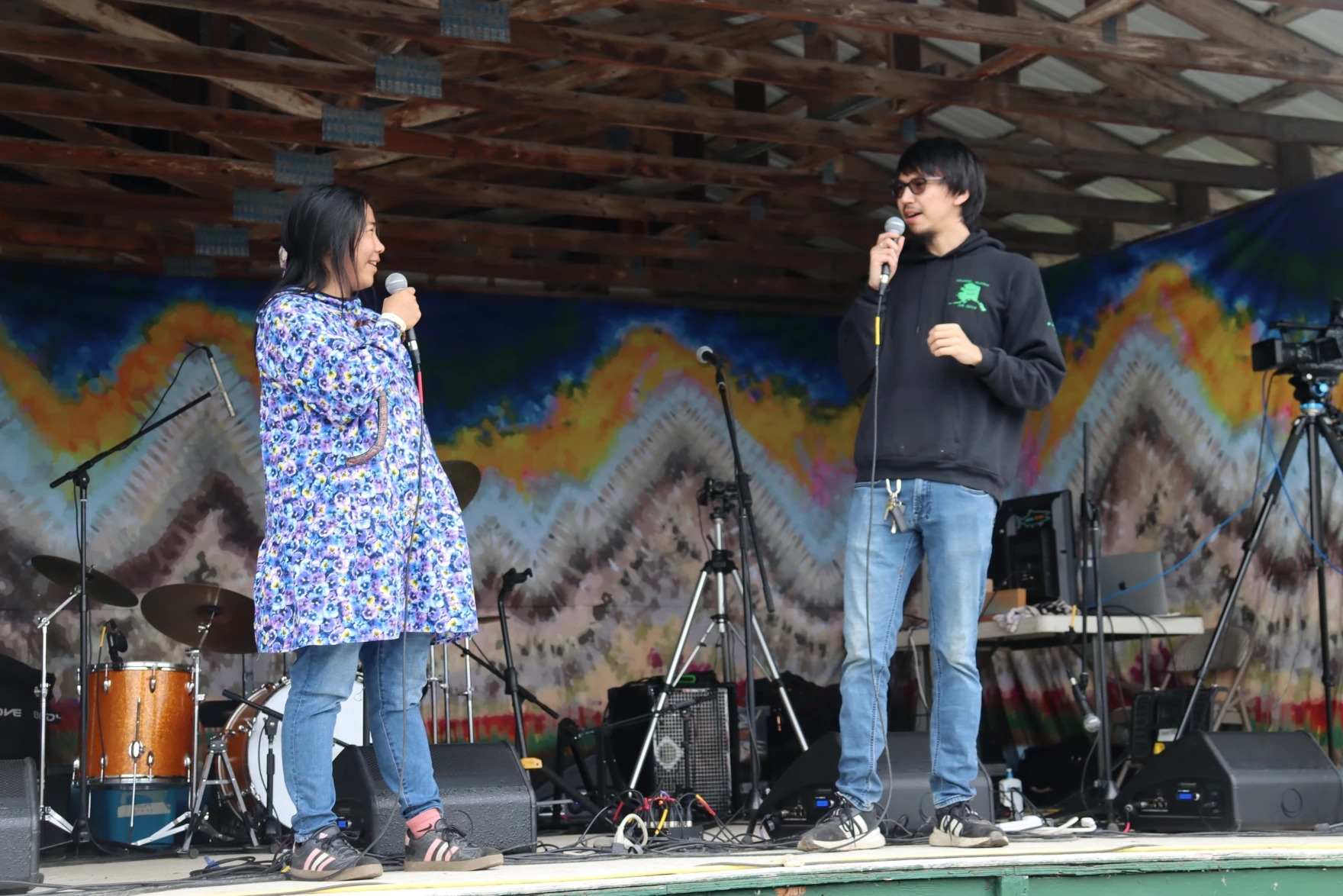
Casey Jack, right, leads a Yugtun beginner phrase session at Salmonfest in 2025. (Photo: Hunter Morrison / KDLL)
Alaska’s annual Salmonfest is a three-day music festival that advocates for the protection of healthy salmon through song and educational resources, but it also highlights Alaska Native culture through workshops and demonstrations.
KDLL’s Hunter Morrison attended one teaching Yup’ik phrases and has this story.
Between musical performances, Casey Jack takes the stage to introduce himself to an audience of about two dozen people.
“I’ll just say hi real quick. Maybe some of you all have heard this. ‘Waqaa.’”
The audience repeats the word back.
“You gotta bring that sound from the back of your throat. Almost like you’re clearing a spit. ‘Waqaa.’”
Jack teaches the group other phrases, like “How are you?” and “Where are you from?”, during the twenty-minute Yup’ik beginner phrase session.
The session is one of a handful at the music festival highlighting Alaska Native language and culture.
“I think in general, Indigenous voices are important to be listening to.”
The Yup’ik session was put together by an organizer who identified themselves as Foot.
“I think that’s kind of our duty as people who maybe are not from this land from time immemorial, to respect and learn from the people who have been.”
While the festival’s main focus is the music and environmental message, Foot says Alaska Native people have been represented at Salmonfest since its kick-off in 2011.
Jack, who led this year’s Yup’ik workshop, says demonstrations like the ones at Salmonfest help keep Indigenous language and culture alive.
“Language is intrinsic to identity, you know? How can you be someone without your language? The language is the very vessel that you’re using to pass down your values, your culture.”
The workshop wasn’t the first time Jack has taught his Native language, but Jack has never held class at a music festival.
Foot, the coordinator, agrees.
“It’s called Salmonfest, and salmon people, and the stewards of this land, are Alaska Native people. If you’re sticking true to it being about salmon, it’s probably also going to be about salmon people.”
Foot says the festival’s environmental advocacy is as much about the people who rely on healthy salmon as the fish themselves.
Get National Native News delivered to your inbox daily. Sign up for our daily newsletter today.
